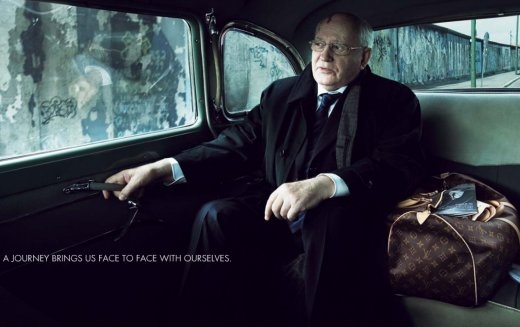
WIKIPEDIA: Mikhail Sergeyevich Gorbachev, born March 2, 1931 in Privolnoye, Stavropol Krai), is a Russian politician. He was the last General Secretary of the Communist Party of the Soviet Union and the last head of state of the USSR, serving from 1985 until its collapse in 1991. Gorbachev’s attempts at reform — perestroika and glasnost — as well as summit conferences with United States President Ronald Reagan, contributed to the end of the Cold War, and also ended the political supremacy of the Communist Party of the Soviet Union (CPSU) and led to the dissolution of the Soviet Union. He was awarded the Nobel Peace Prize in 1990. 1988 saw Gorbachev’s introduction of glasnost, which gave new freedoms to the people, such as a greater freedom of speech. This was a radical change, as control of speech and suppression of government criticism had previously been a central part of the Soviet system. The press became far less controlled, and thousands of political prisoners and many dissidents were released. Gorbachev’s goal in undertaking glasnost was to pressure conservatives within the CPSU who opposed his policies of economic restructuring, and he also hoped that through different ranges of openness, debate and participation, the Soviet people would support his reform initiatives. At the same time, he opened himself and his reforms up for more public criticism, evident in Nina Andreyeva’s critical letter in a March edition of Sovetskaya Rossiya.[4] Gorbachev acknowledged that his liberalising policies of glasnost and perestroika owed a great deal to Alexander Dubcek‘s “Socialism with a human face”. When asked what the difference was between the Prague Spring and his own reforms, Gorbachev replied, “’’Nineteen years’’”.[9] MORE
